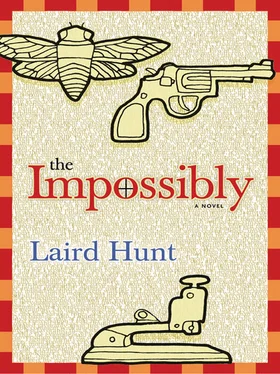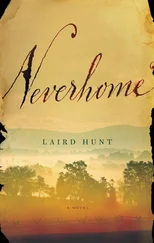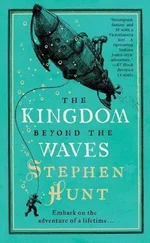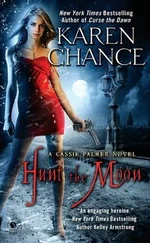By who? (I thought)
The authorities.
Which authorities?
Those charged with seeing to this variety of incident.
And how did you come by this information?
I was part of the cleanup crew.
To clean up the blood and …?
Yes. This was following the assessment.
After the scene had been analyzed?
There was no analysis. There was just the assessment. Then the cleanup. There were several pints of blood and three slivers of cranium.
Who measured the blood? Who determined that it was cranium?
I did.
Under whose orders?
The authorities.
Whose authorities?
The firm’s.
What firm?
I can’t tell you.
What became of the body?
(I was now addressing Mr. Brown.)
It had been removed.
By who?
Difficult to say.
Isn’t it possible that the body, not dead, removed itself?
No.
Why not?
There were certain indications.
Such as?
The blood, of which there was a great quantity, had spread around the body and congealed, leaving behind an almost perfect outline.
Almost perfect?
There were bootmarks in the blood, they interrupted several of the edges.
At this point Mr. Jones showed me a photograph. The photograph was of the crime scene — a damp alley to one side of which stood a green metal door, an alley much like the one I had followed my first client’s husband to, much like the one I had recently visited, having left the disused power station and having, part of me that is, returned. John was in the photograph. He was standing off to the side, looking down at the almost perfect outline of a small body. I am small.
Who was the victim?
We don’t know.
(This was Ms. Green.)
Who is we?
We of the firm.
What firm?
I can’t tell you.
I know what firm.
Not from me.
No, not from you.
We sat there. I stared at her astonishingly pretty face.
How long have you been dead? I asked her.
I’m not sure I am yet.
And where is your body?
I don’t know.
Where is my body?
Not, perhaps, where you think it is.
It suddenly occurred to me that I had been speaking aloud, that almost all of the preceding had, in fact, been said loudly enough for the individual with the cracked tooth to hear.
Did you hear me? I said.
Yes, he said.
So you can see I know very little.
Not as little as you should know. One should know very little about these matters, as little as possible.
About what matters?
But instead of answering, he took a gun from his pocket and aimed it at me.
Yes, knowing very little is best in these matters, he said.
The gun, unless my eyes were deceiving me, was largely transparent and glowing slightly, and though I wasn’t entirely sure what a gun, or any weapon for that matter could do to me, given my current condition, I did not feel I was adequately informed to make a safe decision. And in fact it was just as well that, right when he smiled and pulled the trigger, I allowed myself to fall backwards through the wall, because the bullet, itself partially transparent, that issued from the gun and struck me in the neck instead of, most likely, the heart, did do considerable damage and hurt tremendously, as bullets, even beautiful ones, are wont to do.
Shot through the neck and falling backwards, I watched him smiling, his cracked tooth caught in some stray line of light, my secretary’s head peeping in through the door, until the wall I had fallen through obscured them.
For a time then I fell — through the floor of the next room then through other floors then through the earth, which glowed and seemed warm, and then through a shaft on the edge of a platform and onto the rails of a subway line along which I skidded for a time then lay still. I don’t know how long I lay there, but many trains passed through me, causing me only a slight pain, and nothing compared to the pain in my neck. It was likely this rather severe pain, which held me immobile, that helped bring to mind promising bits of memory that emerged for a moment like pieces of some phantom jigsaw puzzle that came tantalizingly close to locking together, only to pull apart again before I could discern their pattern. Some of what I remembered as I lay there has completely vanished, but the substantive details included the following:
I had been in love with someone, someone I had walked with through a white mist.
I had, at some point, been to the boss’s office, had seen the train set and had a gun held to my head.
I had been to the crime scene before the crime, had followed a well-dressed individual into the poorly lit alley, had watched him knock on then disappear through the green metal door, had myself gone through the door, where, in the dark, I saw machines.
As I lay there, stray images of my childhood came to me, years ago, years before, of myself lying dreaming in an attic room, light on the ceiling, mist in the yard. Then of a conversation with a stranger, a traveler, dead bees in his pocket, butterfly net.
Then a memory of a beautiful face set into a smile, gazing at me.
Then, again, the boss’s office — lying amid the train sets, standing up, being forced up, Ms. Green being brought in. The name Lyla seemed, for a moment, to correspond to her. She had been badly beaten, couldn’t stand. Her beautiful face was set into a smile, gazing at me. There was a gun at my head. The boss, who up until that moment had been hidden in the gloom, came forward, caressed her cheek, then ….
At any rate, it was the thought that I had been in love with someone before whatever had happened to me, this perplexing and galvanizing premise, that caused me at last, as I remember it, the pain in my neck notwithstanding, to stir and, eventually, one or two more trains having passed through me, to rise.
Then I walked along the tracks, through dark tunnels lit occasionally by train lights and yellow soot-covered lanterns. Every few hundred yards the tunnels opened onto platforms where people, collapsed into chairs, slumped against walls, leaning on painted girders, waited in a kind of daze. They were strangely attractive to me these people waiting for trains beneath the surface of the earth, and once or twice as I walked I stopped and considered them. Mostly though I walked, and walked and walked, and stopped walking and rested with my cold feet in a puddle, which held some special appeal for the rats. The rats, intent upon their puddle, which probably had a little oil or meat in it, paid me very little attention, although one or two of them attempted, in desultory fashion, and with no luck at all, to bite my ankles.
The city was as intricately articulated below its surface as it was above, and it was not at all unpleasant to walk along, at best a pale blur, and think about love. Or about being in love. At first it troubled me greatly that I could call no further details to mind, and that, in fact, some of what I was sure I had remembered, had already slipped my mind. But this feeling passed quickly enough.
I love you, I said, and the words both warmed and chilled me as if they were some strange food or drug. I walked and walked and the words hand in hand accompanied me, as did the words I love so that after a time, when I began to rise up off the tracks, through the damp ceiling, and back onto the dark streets, I was not surprised. Nor was I surprised when, still walking, still wrapped in similar thoughts, my mouth making the shape of similar words, I floated up the sides of several buildings and once a water tower, where, as the cold wind blew both through and around me, I could just make out the gray-blue light of the approaching dawn.
I’m not sure how I made it home.
I’m not sure, either, how, once home, I managed to turn my thoughts away from love — I had been having visions of horned melon and strange berries and rare truffles — and back to the case, which clearly, if what I had remembered had any validity at all, related to me and Ms. Green.
Читать дальше










![Беар Гриллс - The Hunt [=The Devil's Sanctuary]](/books/428447/bear-grills-the-hunt-the-devil-s-sanctuary-thumb.webp)

